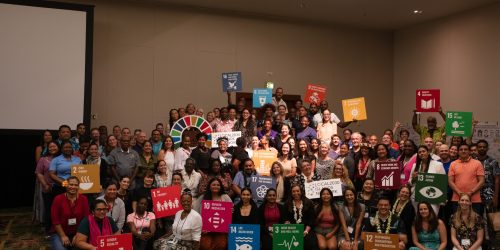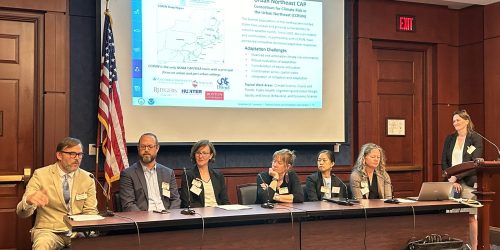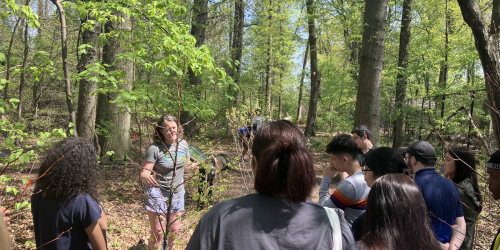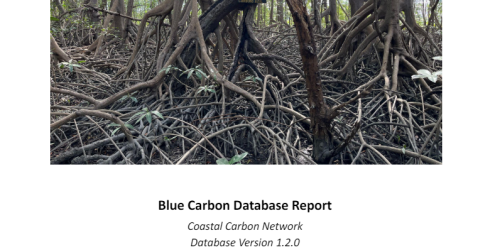Our dear friend and distinguished colleague Dr. Stephen (Steve) R. Piotrowicz passed away suddenly and unexpectedly on April 2, 2018. While we, his NOAA colleagues, are deeply saddened by his departure and miss him sorely, we are also celebrating his life, leadership, and remarkable legacy of scientific achievements. There will be a Catholic Funeral Mass held this Friday, April 13, 2018 at 10am at the St. Michael the Archangel Catholic Church.
There will also be a Memorial Service at a later date for friends, family, and colleagues to be able to share their memories. Please look here for information as it becomes available.
Steve’s career of over 42 years at NOAA has been marked by dedication to NOAA’s mission, as well as notable professional achievements and successes. During the 1980s and 1990s, Steve was an Oceanographer at the Atlantic Oceanographic & Meteorological Laboratory (AOML) where he published on ocean trace elements and the variability of atmospheric gases. Steve moved to Washington, D.C., in the early 1990s where, as part of the Office of Oceanic and Atmospheric Research (OAR), he took on responsibility for managing several observing and climate research programs—many of them focused on observing the Tropical Pacific region. Steve’s work led, in part, to today’s suite of ocean observing assets used routinely for Seasonal-to-Interannual forecasts of climate phenomena, like El Niño. During this period, Steve earned Bronze and Silver Awards from the NOAA Administrator for his outstanding leadership of the Pan American Climate Studies Program. Specifically, Steve developed a strategy that doubled the annual allocation of ship time for NOAA’s oceanic and atmospheric research; provided leadership for strategic planning for climate research; and contributed to the design, procurement, and deployment of a Doppler radar for the NOAA Ship Ronald H. Brown.

Starting in 2001, Steve turned his attention to developing more integrated and global ocean observing capabilities and activities. As deputy Director of the National Office for Integrated and Sustained Ocean Observations (at the time called Ocean.us), he supported and coordinated a number of NOAA mission-critical activities. He also became the program manager for the U.S. Argo program, which has now grown into a global array of more than 3,500 profiling instruments that are routinely measuring the global ocean down to 2000-meter depth. Argo data are used worldwide by researchers (more than 3,100 publications to date) in multiple disciplines—including oceanography, meteorology, and global environmental change—providing foundational information for ocean, weather, climate, and regional forecast models in NOAA and other institutions nationally and internationally. A 2015 National Academy of Sciences report, titled “Sea Change: 2015-2025 Decadal Survey of Ocean Sciences (2015),” had this to say about the Argo program: “As the first observing system for the global subsurface ocean, the international global Argo array of over 3,000 profiling floats has transformed how large-scale ocean processes are studied and has blazed organizational trails that may guide developers of future oceanographic observing infrastructure… Argo is a case study of how transformational discoveries result from a good alignment of infrastructure with science priorities.” Steve received his second NOAA Administrator’s Award in 2016 for his passionate and tireless contributions to the international Argo program, and for his contributions to the advancement of global oceanography within NOAA and the international community.
Steve was an outstanding communicator. He enjoyed speaking to diverse public audiences about the Argo program and how it is evolving our understanding of the ocean. He was also a champion for oceanography education through activities such as the National Science Foundation’s Dissertations in Chemical Oceanography (DISCO) symposium, and a range of Argo/oceanography videos and books targeting elementary schools. Steve will be remembered as a brilliant scientist, a charismatic leader, and a positive influence within NOAA and the international oceanography community.










